After the first week of November 1915, some 10,000 British and Indian troops were pinned down in the town of Kut al-Amara in Iraq, by an Ottoman force of some 11,000 men. The British made several attempts to relieve the town, but the attacks were all repelled.
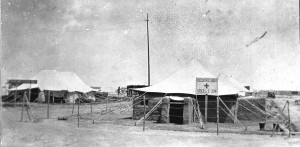
At the start of the siege General Townshend, the commander of the British-Indian force, had estimated that the garrison at Kut had enough food to last one month. But these stocks had to sustain not only the troops but also the townspeople of whom there were some 6,500. As the weeks went by, food ran critically short.
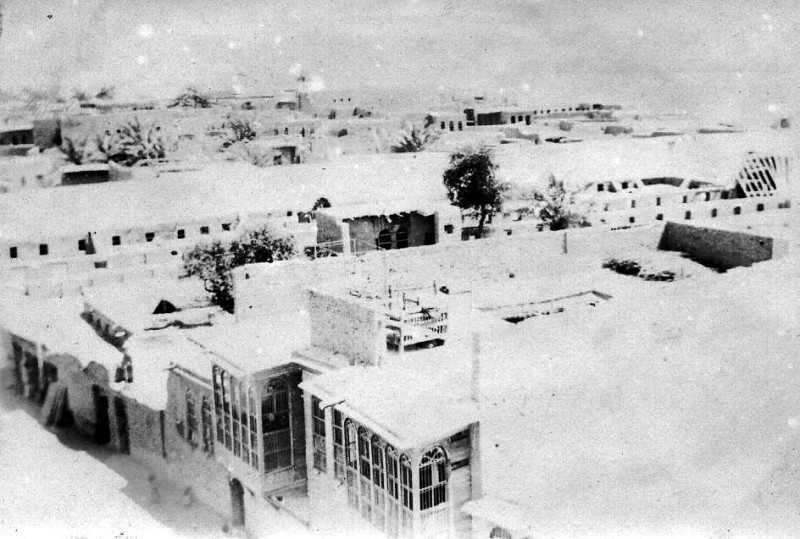
In the meantime, Sisir Sarbadhikari and his fellow volunteers of the Bengal Ambulance Corps clung to the hope that a Relieving Force would soon break through.
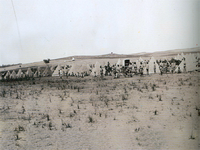
March 4th. It’s rumoured that a Relieving Force will arrive on the 14th or 15th. Some think the Russians will save us. I don’t have much faith in that, not many do. (80)§ß
We’re hungry all day long.
There’s a rumour that the Turkish general has sent a proposal to our general saying there’s no point in wasting any more lives and we should come to an understanding. Our general didn’t agree to it.
10th. Our rations are being cut daily since the Relieving Force retired. Arab houses are being searched to see if they’ve hidden away any food. Food has been found in many houses. They’d buried it in the earth. (82)

16th. Some Muslim sepoys have fled from Kut and run over to the Turks – in other words they’ve deserted.
In wartime other than mutiny, there is no greater crime than desertion. If caught, the punishment is also extreme – death.
In Kut desertions happened from time to time, because of hunger. Firstly there was the suffering of hunger; on top of that these sepoys were being made to fight those of their own faith; these were the reasons why Muslims deserted. Looking back, I have to say that desertions were few; what is surprising is that there weren’t more.
One day a young fellow of the 119th Regiment was caught trying to escape. Some Sikhs were on their way back from the trenches when they saw the chokra, walking past the trenches. This made the Sikh Subedar suspicious and he brought the fellow to the O.C. of the 119th. The chokra was unable to provide a satisfactory account of his behaviour. There was a summary court-martial – sentence, death! The firing party was picked from his own company – perhaps it included men from his own village? Or perhaps even a relative? He was blindfolded and his chest was laid bare by the medical officer of the 119th who turned him to face the firing party; the Adjutant looked on. After it was over, the medical officer, Capt. Ubhaya, examined him to make sure he was dead. (83)
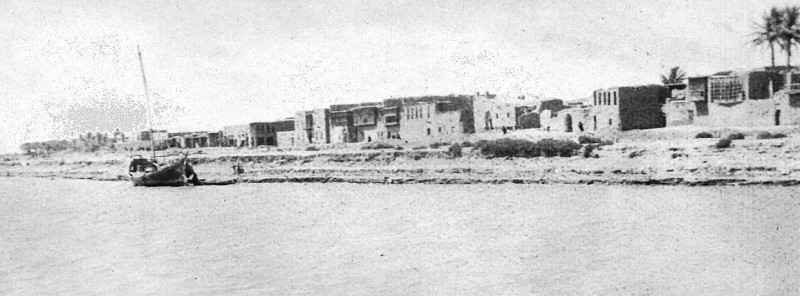
March went by too. For food all we had was a little horsemeat and some flour mixed with dust. We’d eat the flour after mixing it with water. We’d cook the horsemeat on some embers of coal-dust mixed with crude oil, and eat it half-cooked. Even now many sepoys cannot bring themselves to eat horsemeat. Their condition is beyond description… (85)
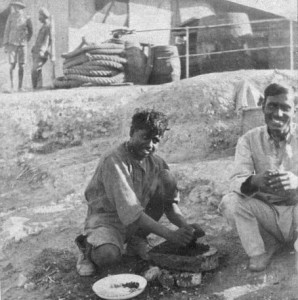
At this awful time Ranada [i] did something that helped a lot of people. He went out into No-Man’s Land where there was a constant storm of gunfire; heedless of the danger, he brought back grass, leaves, herbs and things like that. A lot of greenery had sprouted after the rains. We’d boil and eat these. When there was enough we’d give some to the I.G.H.. This saved many of us from scurvy. Ranada didn’t know fear. He was always smiling and cheerful.
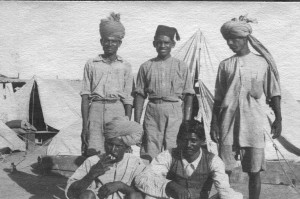
Despite everything, the eighteen of us would drum up a noise and have fun. Every evening we would sing. Our billet became a small club. … An artillery driver called Malaband used to come often. (86) He was a God-fearing man; but in the end he lost his mind and killed himself. Several others killed themselves in Kut. Firstly there was the hunger and all the other physical torments; on top of that no news from home. There’s nothing strange about losing your mind in those circumstances.
Whoever came to our billet was charmed by the behaviour of our havildar, Champati. If Champati had not been our havildar we would not have earned quite as much of a good reputation as we did. He was a man of rare patience and humility. He was the right havildar for our Bengali temperament. We were not quite accustomed to military discipline, so instead of being harsh he would get us to work either with kind words and pats on the back, or with gentle scoldings. (87)
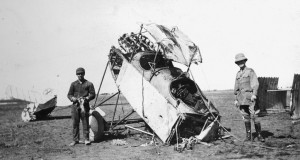
In April the British made some ineffectual attempts to supply the town by plane (this is said to have been the first air supply operation in history).
April 1916… Every day we hear the cannon of the Relieving Force; from the 5th to the 7th we could not only hear them but we could also see the flashes of the shells and the smoke. The Relieving Force had taken some trenches and attacked Saniyat. Everyone’s hopes rose.
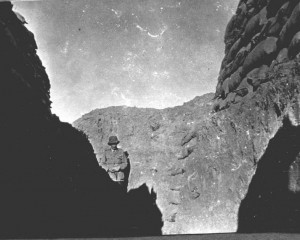
Over the last few days the rations have been cut daily.
We were certainly short of food ourselves but the people of Kut suffered much more. The rations they were given amounted to nothing. They now concluded that the English would not be able to relieve Kut, so many groups tried to leave.
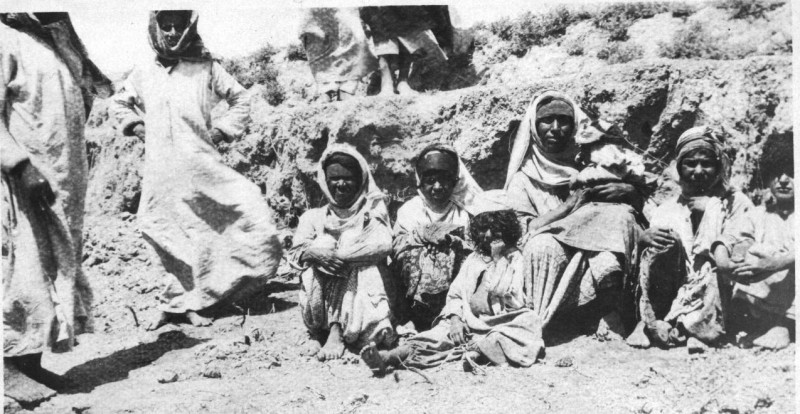
The Turks sent word that any Arabs who tried to leave Kut would be shot. The local Arabs were an additional burden on us so the Turks didn’t want them to leave. But even after this was made clear to the Arabs, some would try to escape every night. Very few were able to escape, most were shot by the Turks. (88)
…
Rumours are flying that the Relieving Force will arrive tomorrow – if not then there’s no hope. (89)
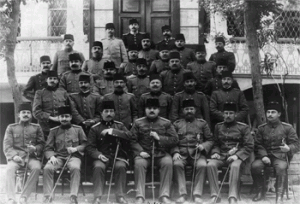
We thought the Relieving Force had arrived. In the morning things became clearer. Climbing up on the roof we saw that a steamer was stuck in the river, some distance away.
We learnt later that the steamer was called ‘Julnar’ and it was on its way to Kut with 48 days’ rations.
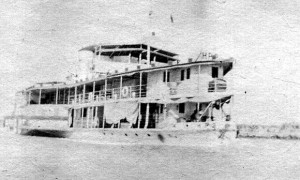
Unbeknownst to us the Turks had cut off the river, so it could be said that they had closed the door to Kut. (90)
After this we all concluded that there was no further hope of relief. After spending so many days in hope none of us had imagined, even in our dreams, that this was how the curtain would fall on the siege of Kut… It was the thought of rescue that had seen us through the worst moments of suffering. Amongst our physical torments the most terrible was hunger; that was with us 24 hours of the day. The agony of it is something that nobody can understand without experiencing it. (91)
27th. From today there is a three-day Armistice. We hear that Townshend is holding discussions with Khalil Pasha regarding our surrender. Some say that we will all be paroled and sent back to India; some say that only the medical units will be released.
28th. There’s not a grain left of our rations.
29th. This is a day not to be forgotten. Orders were published that the Turks did not want to release us on parole or any other grounds; we would have to surrender unconditionally. We were ordered to destroy all our weapons. There were some forty cannon in Kut – they were all spiked. Thousands of rifles were broken and burnt. Boxes of ammunition were thrown into the depths of the Tigris. In this way all our armaments and ammunition was destroyed. (We heard later that the Turks had retrieved some of the ammunition from the river.) (92)
No rations again today.
Townshend sent out his last communiqué. Along with that he published a copy of his letter to Khalil Pasha.
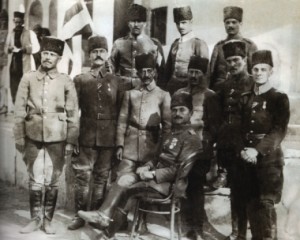
Parts of this letter are below:
Kut-el Amarah
29th April 1916.
The G.O.C. has sent the following letter to the Turkish Commander-in-Chief:
Your Excellency
Hunger forces me to lay down our arms and I am ready to surrender to you my brave soldiers who have done their duty as you have affirmed when you said ‘your gallant troops will be our most sincere and precious guests.’ Be generous then; they have done their duty; you have seen them in the Battle of Ctesiphon; you have seen them during the retirement; and you have seen them during the siege of Kut for the last five months. You have seen how they have done their duty and I am certain that the military history of this war will affirm this in a decisive manner.
I am ready to put Kut into your hands at once; but I pray you to expedite the arrival of food.
Sd. Charles Townshend, Maj. General.
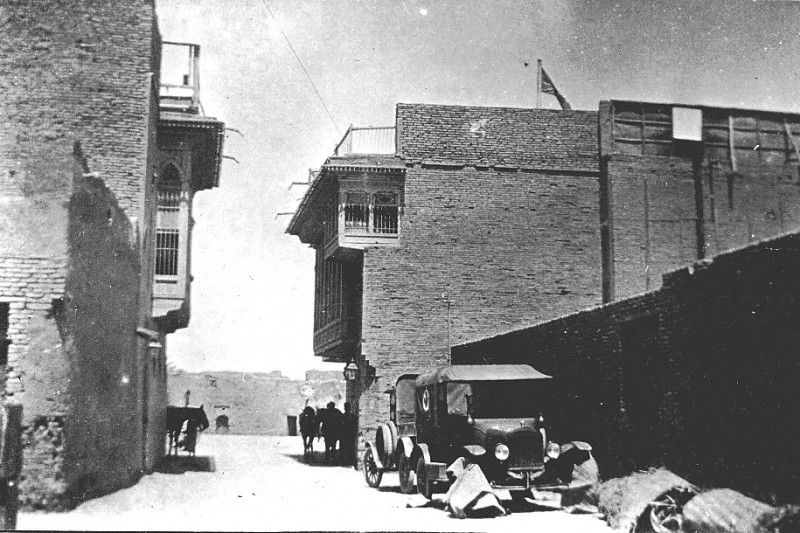
This was how the curtain fell on the historic siege of Kut. (93)
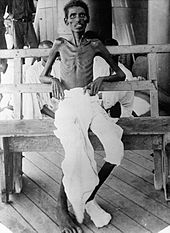
The surrender at Kut was viewed, at the time, as the greatest defeat the British had ever suffered in Asia. According to the website www.firstworldwar.com ‘It was the greatest humiliation to have befallen the British army in its history. For the Turks – and for Germany – it proved a significant morale booster, and undoubtedly weakened British influence in the Middle East.’
§ Capt. Charles Henry Weaver was with the Red Cross in Mesopotamia during the First World War. His remarkable photographs are posted here: http://www.mespot.net/
[i] The reference here is to Ranada Prasad Saha, who would go on to make a fortune in what is now Bangladesh. He would also become a legendary philanthropist. It so happens that he and his family were friends of my parents, and I visited his house several times as a child. He and his son were taken away by the Pakistani army during the 1971 war of liberation. They were never seen again.

For Mr. Amitav Ghosh
I like to be in touch with you as I am doing research on the ‘Military History of Bengalis’. I have many articles and a book on this subject which I can share with you.
Regards
Muhammad Lutful Haq
Bangladesh
My grandfather served in 2/103 Mahratta Light Infantry & returned alive from Kut. He was awarded a pension & a Jangi Inam for his bravery in The Battle of Kut. He died in 1969 at village Apshinge (Military) near Satara (Maharashtra). I have his original medals with his number & name inscribed on them.
Your grand father was a brave man
You are rightly proud of him